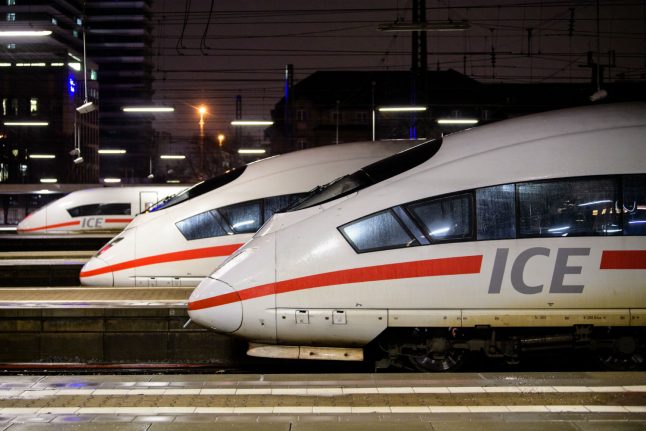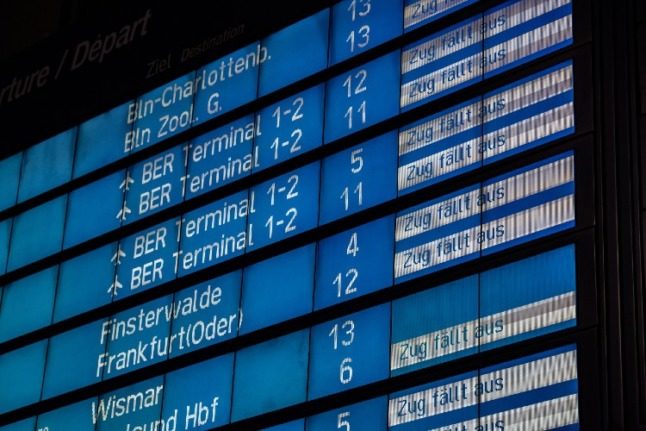The red-and-white-liveried company added 5.7 million passengers compared with 2017, transporting a record 148 million people on its main lines in Germany.
Across Europe, 2.6 billion passengers used Deutsche Bahn trains in 2018 — up 17 million on 2017.
SEE ALSO: How Deutsche Bahn plans to improve its service and staffing in 2019
Overall sales increased by 3.0 percent year-on-year to €44.0 billion.
However, net profit fell from €765 million in 2017 to €542 million as delays, often caused by updating its rail network, again proved to the company's Achilles heel.
“The truth tells us that the success of railways is not without painful side effects,” admitted Deutsche Bahn boss Richard Lutz.
Delays are an issue for the German rail giant, which saw a drop in their punctuality rate to 74.9 percent from 78.5 percent in 2017, based on trains more than six minutes late according to the criteria set by Deutsche Bahn.
Lutz described the punctuality figures as 'unsatisfactory' and said the 2019 goal was to reach 76.5 percent punctuality.
To achieve this, the company boss said, “more capacity is the key to a more punctual and attractive” service.
After investing €11.2 billion last year, an effort largely supported by the federal state, Deutsche Bahn wants to invest a further €12 billion in the coming 12 months.
SEE ALSO: Deutsche Bahn to spend over €10 billion to improve rail services
The company wants to keep its net debt, which reached 19.5 billion at the end of December 2018, below €20 billion by the end of the year.
Freight transportation, operated by the DB Cargo division, continues to
cause problems with an operating loss widening to €190 million from a €90 million loss in 2017.
For the current financial year, Deutsche Bahn is aiming for global revenues
of more than €45 billion, with operating profit above 1.9 billion and net profit exceeding €500 million.



 Please whitelist us to continue reading.
Please whitelist us to continue reading.
Member comments